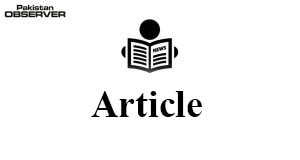World antibiotic awareness week
EACH November, the World Antibiotics Awareness Week (Nov 18-24, 2021) presents an opportunity to educate the public, health professionals and policy makers on the dangers of antibiotic resistance and ways to combat it at local, national and global levels.
Antibiotic resistance occurs when bacteria become resistant to overuse of antibiotics. Antibiotic or Antimicrobial Resistance (AMR) has been called one of the “greatest threats” to human health with significant public health consequences unless we all come together and work to save remaining antibiotics.
Overuse of antibiotics in humans and animals causes AMR that is now a “Major Public Health Crisis”.
Scientists have warned that the world is on the cusp of a “post-antibiotic era”, with extremely resistant bacteria or superbugs. An estimated 700,000 deaths occur each year worldwide due to AMR.
Antibiotic resistant infections will kill an estimated 300 million people worldwide – more that currently die from cancer – by 2050 unless proper and urgent action is taken by all of us.
The total estimated cost for management of AMR infections would spiral to $100 trillion. Antimicrobials are also used selectively in poultry, plant agriculture and commercial fish and seafood farming.
Contamination of human food of animal origin (meat and milk), with drug-resistant bacteria may be transferred to consumers.
With a rise of bacteria resistant to antibiotics in the last decade many bacterial infections are becoming resistant to the most commonly prescribed antibiotic treatments.
COVID-19 worsened our habits of bad prescriptions with both healthcare professionals and the public responsible for using indiscriminately the powerful and precious broad-spectrum antibiotics with impunity.
Every time a person takes antibiotics, sensitive bacteria are killed, but resistant ones may be left to grow and multiply.
Repeated and improper uses of antibiotics are primary causes of the increase in drug-resistant bacteria in human and animal health.
Misuse of antibiotics jeopardizes the usefulness of essential drugs. Decreasing inappropriate antibiotic use is the best way to control AMR.
Children are of particular concern because they have the highest rates of antibiotic use. Unnecessary antibiotics have to be curtailed urgently! In Pakistan antibiotic use is alarmingly high both in humans and animal.
Approximately 70-90% of patients for viral URTIs are prescribed antibiotics unnecessarily that are mostly self-limiting.
Resistant infections due to these “superbugs” are causing thousands of deaths and hospitalization each year.
Since the covid-19 pandemic global antibiotic use has escalated and likely to increase AMR and hamper global and national efforts.
World Antibiotic Awareness Week aims to increase awareness of at global level about antibiotic resistance and to encourage best practices among the general public, health workers and policy makers to avoid the further emergence and spread of antibiotic resistance.
A Global Action Plan (GAP) to tackle the growing problem of resistance to antibiotics and other antimicrobial medicines was endorsed at the Sixty-eighth World Health Assembly in May 2015.
One of the key objectives of the plan is to improve awareness and understanding of antimicrobial resistance through effective communication, education and training.
On the occasion of World Antibiotic Awareness Week (18-24 November 2021) we must resolve to act urgently by taking steps that will curtail antibiotic misuse.
AMR is a global health issue and Pakistan is raising awareness on the need to preserve the power of antibiotics through appropriate use during this week and beyond.
It is not too late to reduce the impact of AMR and we want to highlight that all healthcare professionals and the public have a part to play in preserving the effectiveness of antibiotics.
By reducing the spread of infections and changing how we produce, prescribe and use these medicines, we can reduce the impact and limit the spread of antibiotic resistance.
As we celebrate the World Antibiotic Awareness Week (18-24 November 2021) I would like every Pakistani to act urgently by taking steps that will curtail antibiotic misuse especially during the COVID-19 pandemic.
We must join National and Global efforts to reduce antibiotic use and help to prevent spread of “superbugs” to save lives and our children’s future!
—The writer is Professor Department of Pediatrics and Infectious Diseases Shifa International Hospital, Islamabad.










